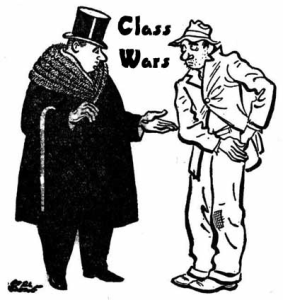Global Unemployment to Hit 202 Million While Wealth of Top 1% Has Increased by 60%

Economic inequality between the rich and the working class is prevalent on an international scale, as evidenced by the latest numbers on unemployment and wealth accumulation.
A new report (pdf) produced by the International Labour Organization (ILO), a United Nations agency, says the number of jobless people worldwide is now more than 197 million, with another 39 million having given up looking for work. It points out that 73.8 million of those unemployed are youths.
The ILO added that the total number of unemployed workers is projected to increase by 5.1 million in 2013, bringing the total to 202 million. Still another three million will be thrown out of work by 2014, according to the report.
Unemployment in the euro zone currently stands at 11.8%, and 7.8% in the United States.
While hundreds of millions struggle to find a job, the wealthy are sitting atop more money than ever. A report (pdf) from Oxfam found that the incomes of the top 1% globally have increased 60% in 20 years, and “the growth in income for the 0.01% has been even greater.”
In the U.S., the share of national income going to the top 1% has doubled since 1980, from 10% to 20%, while the top 0.01% saw its share quadruple “to levels never seen before,” according to Oxfam.
The problems caused by such an income disparity are multifold, claims the Oxfam report. It limits economic growth, and provides the wealthy with an abundance of political power that feeds resentment and, potentially, unrest within those of lesser means. Greater environmental destruction is also a product of that disparity, says the report: “Those in the 1% have been estimated to use as much as 10,000 times more carbon than the average US citizen… [A]ssets being monopolized by the few cannot continue if we are to have a sustainable future.”
-Noel Brinkerhoff, Danny Biederman
To Learn More:
U.N. Agency Warns of Rising Unemployment (by David Jolly, New York Times)
Global Employment Trends 2013: Recovering From a Second Jobs Dip (International Labour Office) (pdf)
Global Inequality Skyrockets: Report Says Top 1% Have Increased Wealth By 60% Over Last Two Decades (by Alex Kane, AlterNet)
The Cost of Inequality: How Wealth and Income Extremes Hurt Us All (Oxfam) (pdf)
100 Richest People Could End Poverty with One Year’s Profits (by Noel Brinkerhoff, AllGov)
147 Companies Control 40% of World’s Wealth (by David Wallechinsky, AllGov)
Top Companies from Emerging Nations to Shape Global Economy (by Noel Brinkerhoff, AllGov)
Massive Layoffs Around the World (AllGov)
- Top Stories
- Unusual News
- Where is the Money Going?
- Controversies
- U.S. and the World
- Appointments and Resignations
- Latest News
- Trump Renames National Football League National Trump League
- Trump to Stop Deportations If…
- Trump Denounces World Series
- What If China Invaded the United States?
- Donald Trump Has a Mental Health Problem and It Has a Name






Comments